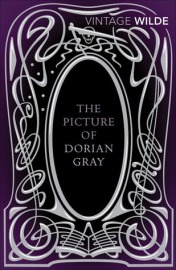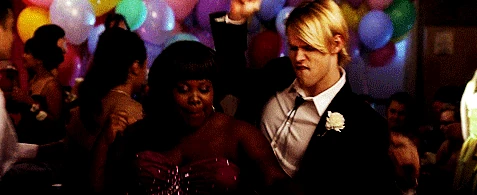Forgive me Father, for I have sinned. As much as I try to read the book before seeing the movie, I erred on this one. In my defence, when I saw the movie – the 2009 adaptation of the novel – I only recently found out that it was an adaptation of a book and at that time, I hadn’t much interest in reading the book. In fact, it was the film that made me want to read the book. However, like it happens so much when you turn the natural order on its head, seeing the film first made me eager to read some scenes that weren’t in the book. I was sad, at that, but that does not mean that this isn’t a great novel. Well, quite on the contrary.
 Dorian is a good-natured young man until he falls in with the cunning and quick-tongued Lord Henry, who unveils to Dorian the power of his own exceptional beauty. As he gradually sinks deeper into a glamorous and decadent world of selfish luxury, he seems to remain physically unchanged in spite of age and the stresses of his corrupt lifestyle. But in his attic, hidden behind a curtain, his portrait tells a different story.
Dorian is a good-natured young man until he falls in with the cunning and quick-tongued Lord Henry, who unveils to Dorian the power of his own exceptional beauty. As he gradually sinks deeper into a glamorous and decadent world of selfish luxury, he seems to remain physically unchanged in spite of age and the stresses of his corrupt lifestyle. But in his attic, hidden behind a curtain, his portrait tells a different story.
The story itself really appeals to me – hence the reason why we went to the film – and I quite like how the plot unravels here. The big difference between the movie and the novel, is that the book is more subtle. I was waiting for some pretty graphic scenes, but instead I only got allusions and I appreciated the subtlety of it. The 2009 adaptation, on the other hand, really puts everything out there and it was an experience I was not expecting. Insofar that we went to the theater expecting to see a good film but got out scared as hell. That happens when you’re on holiday and just enter a movie theater without seeing trailers or anything. The book has none of these horror-moments, though. I particularly liked the evolution of Dorian Gray, from a sweet and innocent young man into this corrupted being who only lives for pleasure. I would have thought that he would redeem himself in the end, but he didn’t and it made the ending even more powerful. If I have to point out one particular part of the book that I thought best, it would be those last few chapters, where everything starts falling apart around him. That was pretty powerful storytelling, I think.
“I only got allusions
The biggest contribution to this story is its characters. Especially Dorian and Lord Henry are pretty powerful individuals. As I said, it’s great to see the transformation in Dorian – even though it’s for the worse – cause it gives some good insight in the darker corners of human behaviour. Without Lord Henry, though, this wouldn’t have been the case at all. It is Lord Henry who corrupted Dorian’s mind with his twisted and sick theories on pleasure and life, but I doubt is he ever put his money where his mouth was himself. One can argue that Henry isn’t completely to blame, cause Dorian eagerly absorbed every single word Henry uttered, but still, it felt like he prayed on the weaker. Without being evil in the strictest sense, I felt a very powerful loathing towards Henry and thought him quite a good antagonist of sorts. A pity, though, that Basil’s role is quite limited. I felt like he could have been a good influence on Dorian and was sad to see him fade to the background.
“some good insight in the darker corners of human behaviour
Seeing that this novel is quite dated, I feared a bit for the writing being hard to get through. However, the only thing that prevented me from powering through this, was the tiny print of the particular edition I managed to get my hands on. The writing itself was actually pretty beautiful and poetic. I found the language to be very rich without going over the top in terms of description or the usage of adjectives. There was one part, however, around the middle which was pretty thick to get through for it describes all of Dorian’s follies. I would have liked that better if it wasn’t told but rather shown to the reader, cause that would have made it less dense. Apart from that, though, I liked the pacing of the story and really enjoyed Wilde’s writing.
As much as I feared that the film would ruin the book for me, it didn’t in this case. If the book is good enough, it can draw you in all the same. I might have known how the story goes, but it didn’t keep me from enjoying the novel in the slightest. I keep telling myself that I should read more classics but somehow there is something that prevents me from actually picking them up. If they should all be like this one, though – which I know they’re not, alas – I’m in for quite a treat, cause this one was a great read.
★ ★ ★ ★

Be pretty, young and reckless. Buy a picture of you.
 With Fell Falls put firmly behind him, Tonmerion Hark has only one desire: to make his way east and once again feel the soil of his Empire under his boots. But blood has been spilt. Machinations of the powerful foiled. Scores have been scraped in the desert sand and now they must be settled. A new power is growing in London, and it pines for revenge.
With Fell Falls put firmly behind him, Tonmerion Hark has only one desire: to make his way east and once again feel the soil of his Empire under his boots. But blood has been spilt. Machinations of the powerful foiled. Scores have been scraped in the desert sand and now they must be settled. A new power is growing in London, and it pines for revenge.
 The tyrant Geder Palliako had led his nation to war, but every victory has called forth another conflict. Now the greater war spreads out before him, and he is bent on bringing peace. No matter how many people he has to kill to do it.
The tyrant Geder Palliako had led his nation to war, but every victory has called forth another conflict. Now the greater war spreads out before him, and he is bent on bringing peace. No matter how many people he has to kill to do it.
 The impossible has been accomplished. The Lord Ruler – the man who claimed to be god incarnate and brutally ruled the world for a thousand years – has been vanquished. But Kelsier, the hero who masterminded that triumph, is dead too, and now the awesome task of building a new world has been left to his young protégé, Vin, the former street urchin who is now the most powerful Mistborn in the land, and to the idealistic young nobleman she loves.
The impossible has been accomplished. The Lord Ruler – the man who claimed to be god incarnate and brutally ruled the world for a thousand years – has been vanquished. But Kelsier, the hero who masterminded that triumph, is dead too, and now the awesome task of building a new world has been left to his young protégé, Vin, the former street urchin who is now the most powerful Mistborn in the land, and to the idealistic young nobleman she loves.
 War casts its shadow over the lands that the dragons once ruled. Only the courage of a young woman with the mind of a gambler and loyalty to no one stands between hope and universal darkness.
War casts its shadow over the lands that the dragons once ruled. Only the courage of a young woman with the mind of a gambler and loyalty to no one stands between hope and universal darkness.